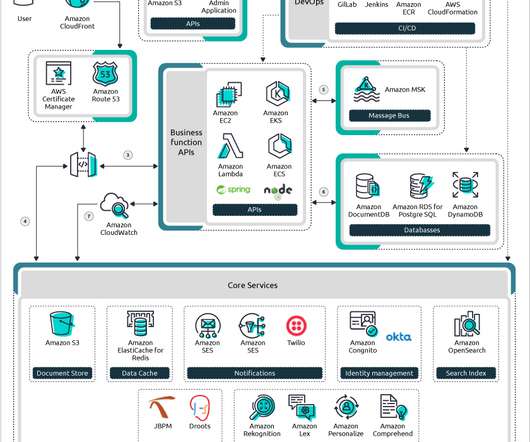Trends Shaping the Insurance Industry in 2024
Perficient Digital Transformation
FEBRUARY 27, 2024
This blog was co-authored by Perficient’s Insurance Principal and expert: Brian Bell As we step into 2024, the insurance industry faces significant transformations driven by technological advancements and evolving customer expectations. Leveraging cloud technology for streamlined operations and enhanced scalability.


















Let's personalize your content